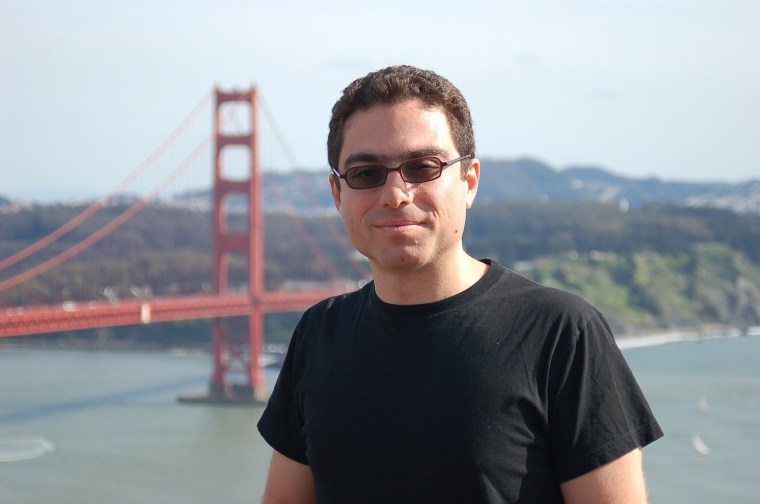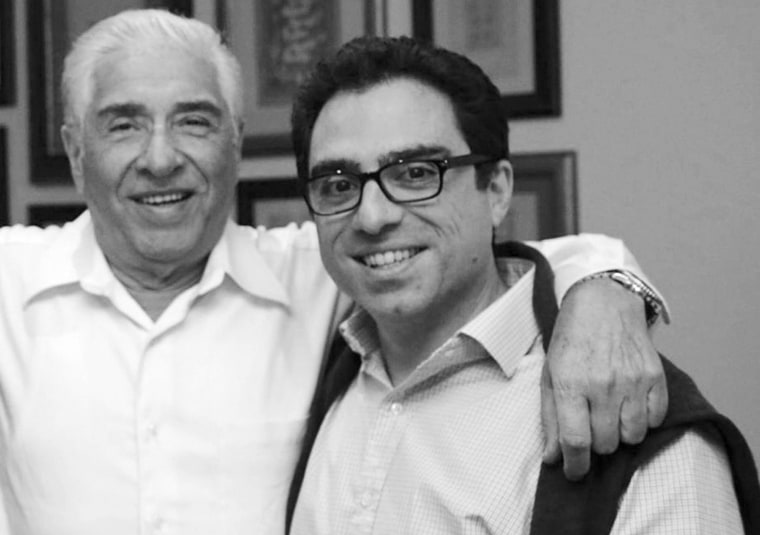WASHINGTON — President Joe Biden's envoy to Iran says he does not want a repeat of a 2016 prisoner swap deal that freed a group of Americans without securing the release of an Iranian-American businessman held in Tehran.
The Biden administration is insisting on the release of all Americans unjustly imprisoned in Iran and will not accept a "partial deal" in its negotiations with Tehran over detained citizens, according to the U.S. envoy, Robert Malley.
"I worked on this issue in the Obama administration when we secured the release of a number of our unjustly detained citizens, but not all," Malley told a group of former prisoners and families of foreigners who are currently behind bars in Iran.
A group of five Americans were released from Iran in January 2016 at the same time that U.S. authorities granted clemency to seven Iranians who had been convicted or faced charges in U.S. courts. But Iranian-American Siamak Namazi was not part of the exchange and remains in a Tehran prison.
The prisoner releases in 2016 came after Iran and world powers clinched an agreement in 2015 limiting Iran's nuclear program in return for an easing of economic sanctions.
Malley said the 2016 episode is understandably "a very sore point" with the relatives of Namazi, who is still imprisoned and whose elderly father, Baquer, was later detained in 2016 and remains barred from leaving the country.
"It's something that weighs very heavily on me and on us, a number of us who were involved with the deal that was concluded in 2016. And this is some work that we need to complete," Malley said Tuesday at an online event organized by Hostage Aid, a nonprofit devoted to helping families of detainees held abroad and to research how hostage-taking networks operate.
"I know for so many of you, if not all of you, how personal and how difficult this situation is," Malley said, adding that the issue was "a priority from the president on down."
"We're saying all of them have to come home. We don't want to do a partial deal. We don't want to leave anyone behind. Again, I know how painful that was last time and don't want to relive history," Malley said.
The U.S.-Iran negotiations on a possible prisoner exchange are being conducted at the same time as major powers and Iran also are trying to hammer out a deal to revive the 2015 nuclear accord, known as the Joint Comprehensive Plan of Action. Both the prisoner and nuclear negotiations are being carried out indirectly, with European diplomats acting as intermediaries in Vienna.
Former President Donald Trump pulled the U.S .out of the nuclear deal and Iran has since breached limits on its uranium enrichment and other nuclear activities. President Biden has offered to return the United States to the nuclear accord if Iran returns to compliance with its provisions.
The State Department said this week that officials expect a seventh round of nuclear negotiations to be held "at the appropriate moment."
At least four Americans are currently imprisoned in Iran: Siamak Namazi, his father Baquer Namazi, who was detained in February 2016 and has been on a medical furlough from prison since 2018; Morad Tahbaz, an environmental advocate who was arrested in January 2018; and businessman Emad Sharghi, who was detained in December 2020.
Sharghi was convicted on alleged spying charges only weeks after the U.S. presidential election in November last year, and three days after an Iranian nuclear scientist was assassinated.
The families of the four Americans could not immediately be reached for comment.

Families of Americans imprisoned in Iran have appealed to the Biden administration not to make concessions in nuclear negotiations without securing the release of their loved ones under detention, and to impose sanctions on Iran if Tehran imprisons more Americans after any nuclear deal.
Former prisoners and relatives of former prisoners held in Iran and other countries also have called for the United States and other governments to take a tougher line on hostage taking, urging concerted international action that could deter regimes from imprisoning foreigners to gain concessions or ransom money.
Hard-line elements in Iran, who have remained skeptical of diplomatic overtures to Washington, have backed provocative actions in the past, including the imprisonment of foreign nationals, to undermine any rapprochement with the West, according to regional analysts, human rights groups and former senior U.S. officials.
"We've made some progress. We're not there yet," Malley said of the prisoner negotiations.
He said, "The Iranians are — I can't think of any other word other than being extortionist in this regard and trying to get as much as they can."
Even if the nuclear talks fail to produce an agreement, the United States would continue to pursue a deal on prisoner releases, Malley said.
It was "distasteful" to have to negotiate for the release of Americans, Malley said, as he said they had committed no crime and should simply be released without conditions.
International human rights groups say the Americans, as well as a number of Europeans detained in Iran, have been imprisoned on baseless charges and denied basic civil rights.
Iran rejects that portrayal and says Washington must release Iranian nationals detained in the United States.
"The release of Iranian citizens who are unjustly — and based on phony charges and bogus allegations — detained in the United States has always been a high priority for the Islamic Republic of Iran. But, unfortunately, the U.S. has taken this issue hostage to the Vienna talks," said Saeed Khatibzadeh, spokesperson for Iran's foreign ministry, in an email to NBC News.
"There has been some progress in this regard, but not yet enough. We expect the U.S. government to act more responsibly," he said.
